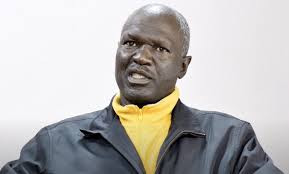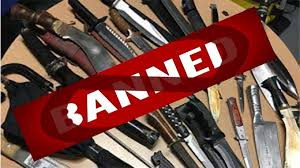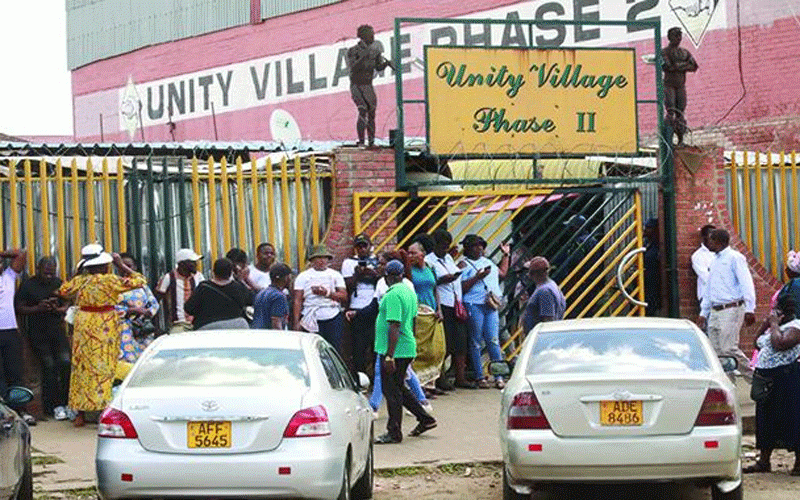As much as this may shock many — the African continent is full of “democratic leaders” — but, there is always one catch...
...their tolerance and good-heartedness towards the opposition is on condition that it is not a serious threat on the ruling establishment's grip on power.
So, it comes as no surprise at all that we witnessed warm embraces and smiles between leaders of rival political parties — as what was recently shared by South Africa’s governing ANC party president Cyril Ramaphosa and opposition EFF's Julius Malema, while attending the inauguration of the new Lesotho government.
Indeed, this image — which understandably endeared the hearts of many Zimbabweans, and went viral — was a source of great hope and envy among a people, who have been frustrated and disappointed by the deep-seated rabid loathing between our two main political players in the country.
This unbridled aversion for each other has led to the relentless spewing of hate speech, as well as rampant persecution and repression targeted at mostly opposition CCC leaders and supporters by the Zanu PF regime — largely characterised by brutal violent attacks, arrests on spurious charges, and even savage killings.
Not surprisingly, Zimbabweans long for a day when our major political actors will embrace each other lovingly — as witnessed between Ramaphosa and Malema — hopefully, signalling an end to the relentless barbaric clampdown on the opposition, in addition to cultivating a spirit of co-operation in nation-building and oneness as a people.
Keep Reading
- Power crisis needs practical solutions
- Dangers of Arab Spring in SA
- Zimbabweans fork out US$24m for SA permits
- Power crisis needs practical solutions
However, I do no want to be the party pooper in all this excitement over the Ramaphosa-Malema picture — but, I still find it impossible to believe that African leaders have reached that stage of political maturity, where they can genuinely embrace rivals, in the true spirit of love and unity.
Let us not forget that, even then Zimbabwe and ruling Zanu PF leader Robert Gabriel Mugabe was once touted as a loving conciliatory Prime Minister, soon after independence when he forgave white former Rhodesians, famously calling for guns to be turned into ploughshares. And thereafter appointed people from (former Rhodesia Prime Minister) Ian Douglas Smith's government, such as David Smith and Dennis Norman, into his first Cabinet.
The Zimbabwean leader was proclaimed as a progressive man — a rare breed of the time — thereby, earning him the adoration and admiration of the entire world, with accolades raining upon him from all corners of the globe.
Of course, that was before he felt his grip on power under real threat just before the 2000 general elections — when the nine-month-old MDC opposition party, led by Morgan Richard Tsvangirai, proved beyond doubt that it could vanquish Zanu PF.
In fact, the MDC won 57 of the 120 seats (with 47% of the popular vote), and Zanu PF won 63 seats and carried approximately 48% of the popular vote, at the June 2000 plebiscite saw a phenomenal, unprecedented performance by any opposition in Zimbabwe.
Haunted by nightmares of losing power, Mugabe lashed out at anyone he perceived as supporting or even bankrolling the MDC — thereby, unleashing reign of terror on the white community he had appeared to lovingly embrace.
Suddenly, the ploughshares were swiftly turned into guns!
The white community was declared enemy number one.
At that time, I recall wondering if Mugabe's so-called vows of reconciliation and love were a huge sham — motivated by the belief that the community was not a serious threat to his grip on power.
This is the same scenario we still see today — long after Mugabe's ousting from office, ironically by his own comrades in November 2017 — with the apparent closeness and friendship between his successor Emmerson Mnangagwa and some small politically-insignificant parties, collectively calling themselves Polad (Political Actors Dialogue).
I am sure all Zimbabweans are aware that this lovey-dovey relationship is purely because Mnangagwa and Zanu PF do not feel even remotely threatened by such puny parties as MDC (no longer the same party of Tsvangirai), NCA, or by whatever names others are known.
Yet, he cannot stand the sight, or even mention of CCC, Nelson Chamisa, Tendai Biti, or Job Sikhala — whom, I am quite convinced, keep him awake all night — in terror or scheming how to make their lives hell on earth.
That is how African leaders generally behave.
It is all smiles and cordial handshakes when all is well, safe and comfortable for the incumbent — let us not forget the ANC holds 230 seats in South Africa's Parliament, while its closest rival DA, and EFF have 84 and 44, respectively.
Let, there be a real threat on his hold on power, and all hell breaks loose. He quickly transforms from a cuddly teddy bear to a ferocious grizzly bear.
I strongly believe that should Malema pose a genuine threat to Ramaphosa or the ANC party — the script will be totally different from what we enviously observed in Lesotho.





